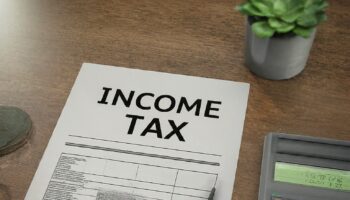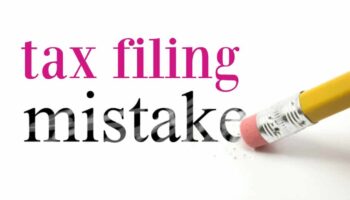If you are a Real Estate Investor, you don’t want to miss this article. I read this article a few weeks ago and found it useful. Some of these expenses are easy to miss, particularly for those Real Estate Investors who file their personal taxes themselves or use tax preparer who are not familiar with real estate investment. This article was written by Cherry Chan, a Chartered Accountant who works almost exclusively with Real Estate Investors.
- Mortgage interest, not the mortgage principal
Many real estate investors think cash flow as their net income and they think that they get taxed on their net cash flow. Monthly mortgage payment consists of mortgage interest and principal pay down. Mortgage interest is a deductible expense but principal pay down is not. The breakdown between the two can usually be found on your annual mortgage statement you receive at the beginning of next year. When you estimate the tax liability owing, you need to add your net cash flow to the mortgage paydown to compute your taxable income.
- Insurance
Insurance coverage for rental properties is different than the home that you live in. Make sure you notify the insurance company about the change of use and that appropriate coverage is taken. Generally speaking, insurance premiums on rental properties are more expensive than your personal home.
- Advertising
Any advertising cost incurred for the purpose of renting out the property is deductible. This includes all the Kijiji ad costs, ‘for rent’ signs that you purchase from Home Depot or specifically made for your property, etc.
- Property management fees / commission you paid to fill the property
If you hire a property manager or use a realtor to fill the property for you, these are all deductible expenses. Make sure you get the invoice from them to support your expense.
- Repairs & maintenance
Repairs & maintenance are generally deductible expenses. The tricky part is to determine whether an expense incurred should be capitalized or should be expensed. If you paint the house, generally speaking it is a deductible current year expense. If you pay for the stamp concrete for your driveway which did not exist before, this will be capitalized and appropriate capital cost allowance can be taken on it.
- Property taxes and utilities
Municipal property taxes and utilities are generally deductible against the rental income. One of the most missed property tax and utilities deduction is at the year of purchase or the year of sale. Some of the adjustments are handled by the lawyers and many investors would miss these deductions. Specifically for investors who converted their primary residence to a rental property, only the expenses related to the rental period would be deductible.
- Financing charge
Financing charge is usually one of the most missed deductions for real estate investors. Some real estate investors incur mortgage insurance expense or finder fees for their mortgages. These expenses can be deductible over a period of time but a lot of real estate investors miss it.
- Auto mileage
This one is tricky. Different criteria apply if you own one property versus when you own more than one property. For investors who only own one property, you are only allowed to deduct motor vehicle expenses if
- The rental property is in the same general area that you live in
- You do repairs & maintenance for your property
- You have vehicle expenses to transfer tools & materials to the property
But you cannot deduct the expenses you incur for the purpose of collect rent if you have only one property. Now for investors who own more than one rental properties, on top of the expenses incurred for repairs & maintenance and transferring tools & materials as mentioned above, you can also deduct the following expenses:
- Collect rents
- Supervise repairs
- Generally manage the properties
To qualify for the multiple properties criteria, they must have at least two different locations than your principal residence. This means that if you rent out your basement apartment and have one single family detached home as rental property, you still cannot deduction any expenses incurred for collection of rent, supervision of repairs and general management of the properties.
- Capital cost allowance
Capital cost allowance is the tax term Canada Revenue Agency uses to represent the wear and tear on the building. It is a deferral mechanism allowed by CRA to defer the income on your properties until the year you sell it. When you sell it, all the deductions taken throughout the year have to be reported as income.
- Line of credit interest
Many real estate investors start out by refinancing their own home to obtain the downpayment of their real estate investment. As a general rule of thumb, any expenses incurred for the purpose of earning income are deductible subject to a list of exception in the Income Tax Act.
Be sure to check with an accountant that focuses on real estate investor if you don’t want to miss any deductions.
Credit: This article was written by Cherry Chan, a Chartered Accountant focused on Real Estate Investors. You can learn more about Cherry Chan and her practice at www.cccpa.ca






